Snellings Law PLLC Attorneys are Personal Injury Trial Lawyers
Navigating Your Personal Injury Claim: What You Can Recover After an Accident
What You Need to Know:
- If someone is injured in an incident caused by someone else’s negligence, they may be awarded damages to compensate for their experience and injuries.
- Damages are awarded after evaluating factors such as liability or severity of injuries.
- Proving damages in personal injury cases can be challenging, but hiring a personal injury attorney can increase your chances of receiving the full value of your claim.
Accidents resulting in injury are life-altering events and an unfortunate reality of life. We’ve seen injury victims left grappling with physical injuries, emotional trauma, and financial burdens after an accident. Whether it’s a car crash or a childcare injury, it’s important to know what you can recover after an incident caused by someone else’s negligence.
When considering what you can recover after an accident, it’s essential to grasp the concept of damages. In the legal world, damages are the monetary sums awarded to an injured party to compensate for their injuries and experience. However, the process of recovering damages can be complex. Many factors can impact the outcome of a personal injury claim.
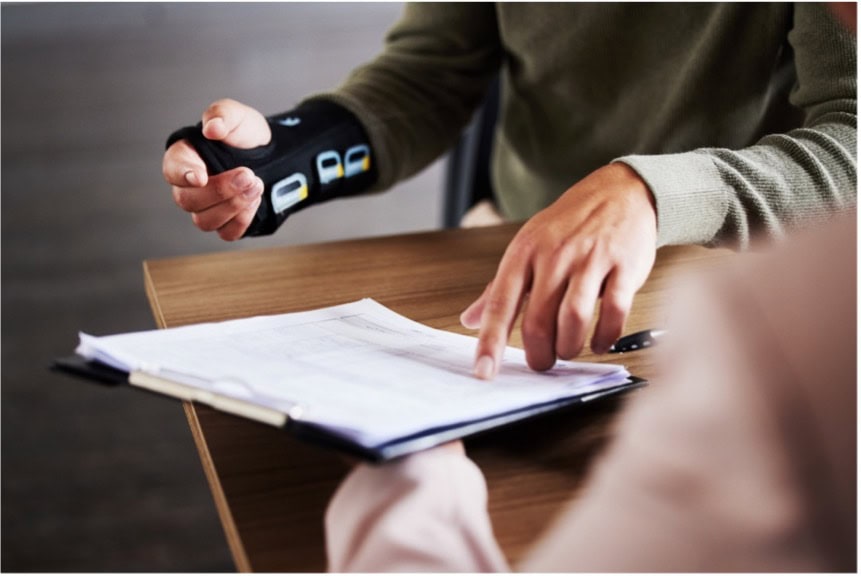
We hope to provide some insight and guidance in this blog to help you understand what you can recover after your accident. By shedding light on these critical aspects of personal injury law, we aim to provide clarity and guidance for those navigating the aftermath of an accident. Understanding your rights is the first step towards securing the compensation you deserve.
Maximizing Your Recovery: Types of Damages After an Accident
When you are injured in an incident, the damages you may recover fall into two categories: compensatory and punitive. Compensatory damages are monetary awards intended to compensate for various losses from an accident. Compensatory damages can be either economic or non-economic.
Economic damages cover the financial losses the injury victim suffered due to someone else’s negligence. Economic damages are easier to calculate than non-economic damages. This is because they involve tangible losses with a numerical value.
We must gather relevant documentation to calculate economic damages, such as medical bills and proof of earnings. We often must reach out to experts to help us prove things like future medical care, loss of earning capacity, and the current amount of those damages adjusted for inflation. The jury will fill out specific amounts for past medical expenses, future medical expenses, lost wages, and future loss of earning capacity. We consider all these categories as the total “economic loss” for the bodily injury claim.
Typical economic damages awarded in personal injury cases:
- Medical Expenses: These damages cover the costs of any medical treatment the injured victim received because of the incident. This includes hospital trips, doctor appointments, surgeries, and/or ambulance costs. Medical expenses may also include any future medical costs. If the injuries are extremely severe or cause lifelong disability, it may be necessary to bring in an expert to calculate the projected cost of future medical expenses.
- Lost Wages: These damages cover any wages the injury victim missed due to their injuries. Often, injury victims can’t work after an incident while they heal. They may also miss work to make doctor or physical therapy appointments. Sometimes, the injuries are so severe that the injury victim is no longer able to perform their duties at work and must look for a new job. These damages aim to compensate for these losses. For more information about lost wages, click here.
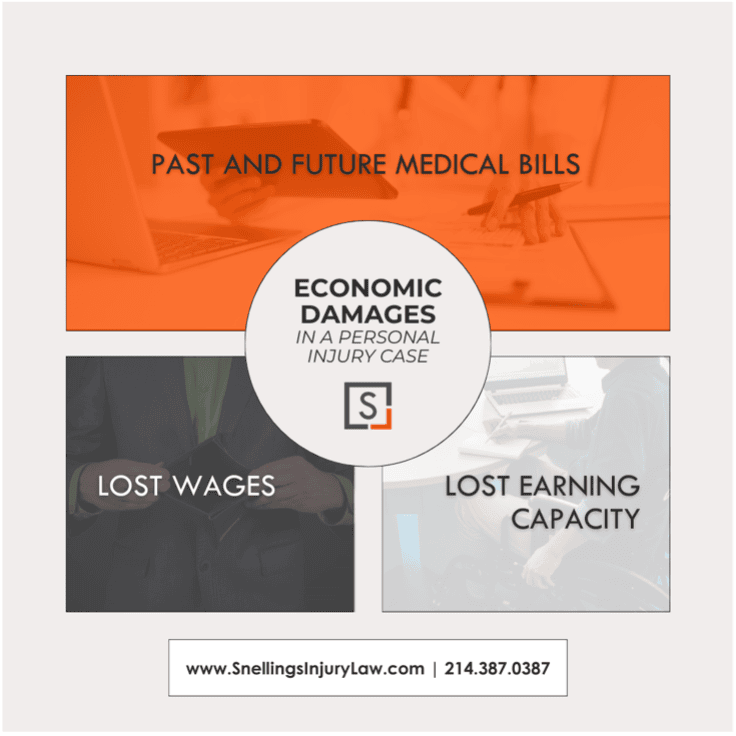
- Funeral Expenses: Sometimes, an accident is so severe that it results in death. If the injured victim passes due to the incident, then the costs of the funeral and any related expenses may be rewarded to their family or estate.
- Disability Costs: If the injury victim is left disabled, they may need in-home care or special equipment to get around the house. These damages aim to cover the costs of accommodations and future expenses regarding their disability.
- Lost Earning Capacity: When a victim is injured, their injuries may be so severe that they impact the individual’s ability to work and earn money in the future. This is different from lost wages. Lost wages refer to wages lost in the recovery period due to the injury, while lost earning capacity refers to future earnings.
Non-economic damages are often the ‘human’ side of personal injury claims. These damages are about how your quality of life has changed due to the injury. You might have experienced pain and suffering or loss of enjoyment of life. These damages can involve deep emotional pain that can’t be shown with receipts. They don’t have an innate number value that can easily be counted. Because there is no monetary amount to reference, like on a hospital bill, non-economic damages are trickier to define. However, they are equally crucial as economic damages.
We have found that non-economic damages are often the most valuable to any claim as they wreak the most havoc on our clients. These kinds of losses frequently require skilled advocates to explain their impact on the injury victim. Finding ways to convince an adjuster or jury to value these losses appropriately is very difficult and tailored to each claim. Snellings Law has experience effectively presenting these to a jury or insurance adjuster. Non-economic damages typically include physical pain, mental anguish, physical impairment, and disfigurement.
Common non-economic damages awarded in personal injury cases:
- Pain and Suffering: These damages are awarded for the injury victim’s physical pain or emotional stress.
- Loss of Consortium: Injury victims may be awarded damages related to the loss of a spouse. These damages include loss of affection, companionship, sexual relations, comfort, and/or assistance.
- Mental Anguish: Injury victims often experience intense distress, anxiety, depression, and/or grief after an incident. Mental anguish damages aim to compensate for this suffering.
- Physical Impairment: Physical impairment damages are awarded when a victim has had to make lifestyle changes due to their injury. They may be unable to work or enjoy life in the same way. Physical impairment damages aim to compensate the injury victim for that change.
- Disfigurement: Disfigurement damages are awarded when the injury victim has suffered a change in appearance or body function due to their injuries. The disfigurement must be visible and permanent to count as disfigurement.
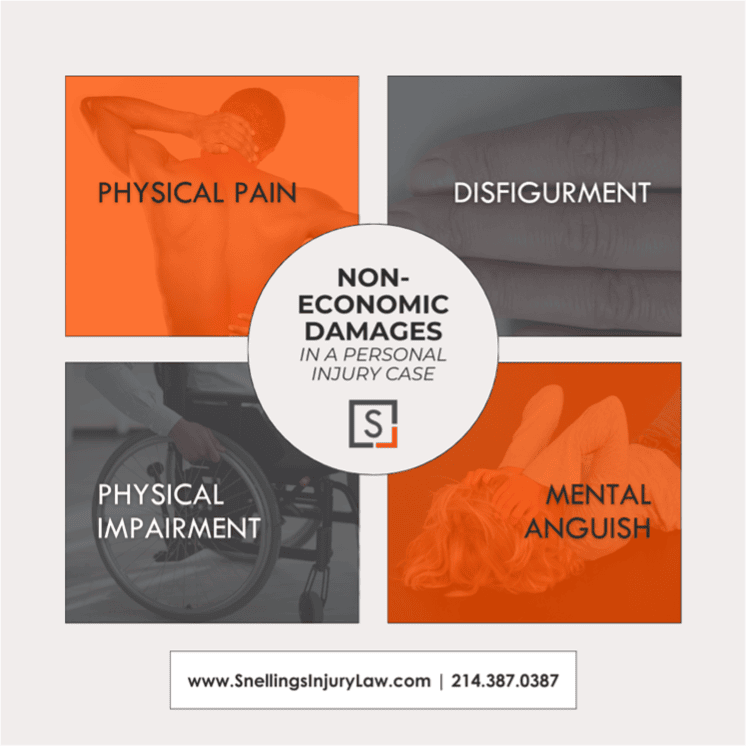
Both economic and non-economic damages are crucial in demonstrating the impact of the injury on your life. Because the non-economic damages are challenging to value, adjusters often focus only on the total amount spent on medical bills. Other times, they pull a low number out and offer that. While medical bills may correlate to the significance of the physical injuries, they often have zero bearing on the non-economic damages. They may, however, provide insight into the various emotions created during the crash. Things like the stress caused by medical bills piling up, the anxiety caused by missing work, or the fear that someone might lose their job can, at times, be shown in the medical records or lost wage evidence. A personal injury lawyer must focus on the bigger picture and find ways to make them work together to show the whole story.
If the incident occurred because of extreme negligence or intentional harm, then punitive damages may be awarded. While compensatory damages aim to make the injured party whole, punitive damages aim to punish the at-fault party. Punitive damages are awarded when the defendant’s actions are found to be malicious, reckless, or intentionally harmful. Because punitive damages are so severe, they are usually awarded only in extreme cases to prevent similar acts in the future.
If you want to know more about specific damages in personal injury cases, watch our Damages Series:
Playlist

0:39

1:35

1:54

2:02

1:38

1:44

1:05
Maximizing Your Recovery: Types of Damages After an Accident
When evaluating a personal injury claim, different factors are evaluated to determine the total amount of damages awarded to the injury victim.
One factor considered is the extent and severity of injuries, which usually significantly impact the recoverable damages. Severe injuries may require ongoing care or result in permanent disability. Permanent disabilities or chronic conditions often require long-term financial and emotional support. If that’s the case, the court may determine that the injured party deserves to be awarded more.
Another factor to consider is liability. Determining liability is crucial in personal injury cases. In some cases, both parties are somewhat at fault. In Texas, injury victims can recover damages as long as they are not the most at fault. However, the compensation may be reduced proportionally if the injured party is found partially at fault.
For more information about the damages evaluated in a personal injury case, watch our video:
Obstacles to Recovery: Challenges in Determining Damages
There are often many challenges in determining and proving what damages should be awarded in a personal injury case. Because of this, there are usually significant roadblocks in obtaining full value for accident claims.
Navigating an insurance claim is a significant challenge for many. Insurance policies often have caps on coverage, affecting the total amount recoverable. Not to mention, insurance adjusters may seek to minimize your claim. Frequently, adjusters will disagree with medical bills as being too high or not necessary. They will “require” lost wage evidence that doesn’t exist or request past medical records that are not relevant in hopes of finding some prior condition. That’s why having legal representation after an accident is essential to advocate for fair compensation.
Adhering to legal requirements and timelines is also critical. There’s a limited timeframe within which a lawsuit must be filed after an accident. This timeframe is called the statute of limitations. For personal injury cases, the statute of limitations is two years after the incident. Acting promptly ensures evidence is preserved, witnesses’ statements are fresh, and legal deadlines are met. All these elements will strengthen your case and give you a better chance of receiving the full value of your claim.
It’s also essential to understand the scope and limitations of recoverable damages in different types of accidents—whether it’s a motor vehicle collision, an injury on someone else’s property, or a childcare incident. The most common injury cases we see are those involving motor vehicles. These cases include car accidents, 18-wheeler accidents, and commercial vehicle accidents. Victims typically seek compensation for medical expenses, vehicle repair or replacement costs, and lost income in these incidents. In these cases, dealing with insurance adjusters is crucial. Often, policies have coverage limitsthat impact recovery amounts.
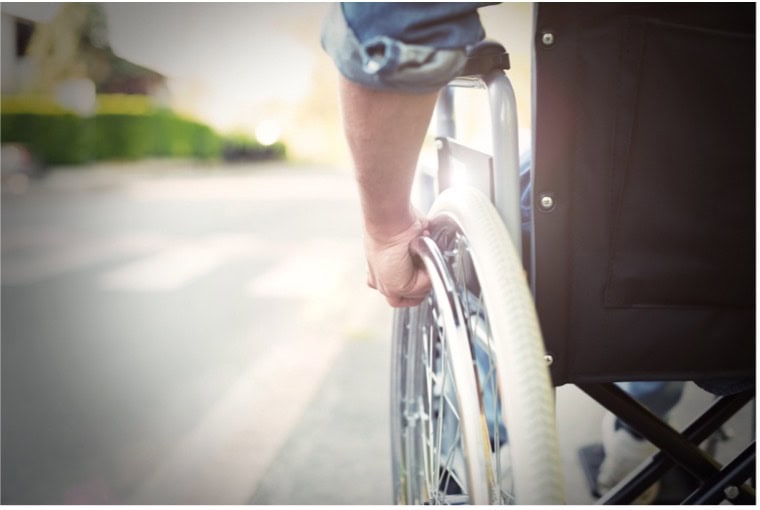
Accidents occurring on someone else’s property involve premises liability claims. These can include medical expenses, rehabilitation costs, and compensation for pain and suffering. Proving negligence is essential in these cases. The property owner may have failed to maintain safe conditions or provide adequate warnings. When you’re injured on someone else’s property, it’s important to document the incident. This will give you the best chance of receiving fair compensation.
We also see cases of children getting hurt at daycare. Damages often awarded include medical bills, emotional trauma, and any long-term effects on the child’s development or well-being. Injuries to children under daycare supervision present unique challenges. Establishing negligence and documenting the impact on the child’s health and future may require expert testimony and a thorough investigation.
Strategies for Success: How You Can Increase Your Chances of Receiving the Full Value of Your Claim
When you’re injured in an incident, the best thing you can do is hire a personal injury attorney. An attorney will increase your chances of receiving the full value of your claim. Experienced personal injury attorneys know how to communicate the economic and non-economic damages you’ve suffered to the adjusters. They can also learn the tricks that adjusters use to devalue your claim and can protect you from hurting your case, and a personal injury attorney can help you return to a place where you’re happy and succeeding.
Snellings Law encourages its clients to take proactive steps in their recovery process. This may involve several steps, including.
- maintaining detailed records of all injury-related expenses,
- adhering to prescribed medical treatments,
- refraining from activities that could undermine the claim and
- maintaining a daily journal documenting how their injuries have impacted their daily activities.
It’s important to have someone on your side with the knowledge and expertise to help you during this difficult time. You deserve to thrive after an accident, and Snellings Law can help you begin your journey to healing.
Snellings Law Attorneys Are the Passionate Advocates You Deserve
At Snellings Law, we understand an injury’s profound impact on your life. Grasping economic and non-economic damages can provide clarity. Whether you’ve been involved in a car accident, a slip and fall incident, or any other accident caused by negligence, our compassionate team of personal injury attorneys is here to support you every step.
We care about our North Texas community and are passionate about helping our clients receive the full value of their claims. We focus only on personal injury cases. Therefore, our experience and dedication mean that we are well-equipped to handle your case and negotiate with insurance companies on your behalf.
You don’t have to navigate this challenging time alone. Let us help you seek the justice you deserve. Contact us today at (214) 387-0387 for a free strategy session with one of our experienced personal injury lawyers. You don’t have to face insurance companies alone – let us be your ally. Your road to recovery starts here.
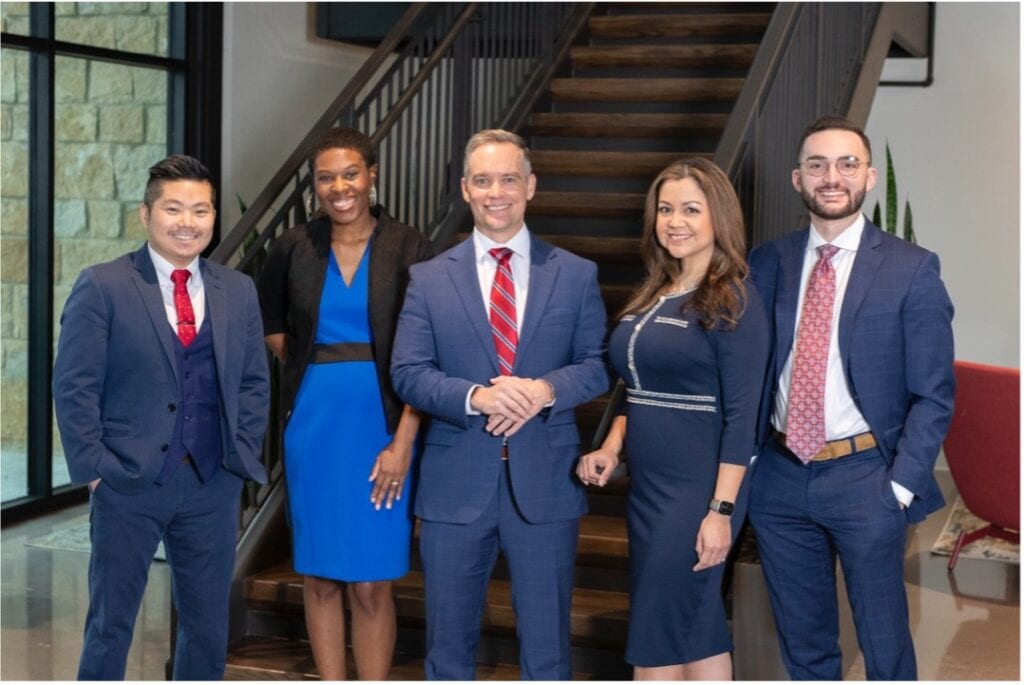
Helpful Links:
How it works:
- Call us now or give us your basic information in the Free Strategy Session box
- If your case is something we cannot help you with, we will do our best to get you the information of someone who can.
- If we can potentially help you, we will schedule a Free Strategy Session
There is zero obligation. We want all injury victims to understand their rights and the process.
After your Free Strategy Session, you will understand where insurance companies can set traps for you and what needs to be done to avoid these traps. You will also understand the personal injury process as well as how we can help, or if you need the help of an attorney. The strategy session typically will have one of three outcomes. You:
- Decide to move forward with our law firm.
- Decide to think about it, and we will be available to answer your questions.
- Say, “I’ve got this,” and decide you do not need an attorney.
Again, there is zero obligation and you will be informed and understand your rights and the process. We want to arm you with knowledge to avoid the traps insurance companies set to harm your claim.

